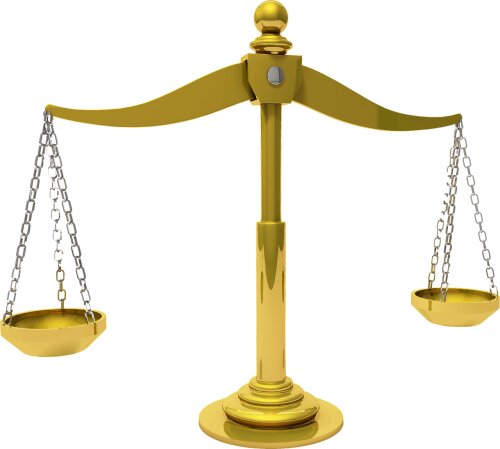Best Discrimination Lawyers in Mthatha
Share your needs with us, get contacted by law firms.
Free. Takes 2 min.
List of the best lawyers in Mthatha, South Africa
About Discrimination Law in Mthatha, South Africa
Discrimination law in Mthatha, South Africa, is designed to prevent unfair treatment of individuals based on various grounds such as race, gender, disability, sexual orientation, and more. South Africa's commitment to equality is enshrined in the Constitution, and the Promotion of Equality and Prevention of Unfair Discrimination Act (PEPUDA) is a key legislative measure aimed at promoting equality and prohibiting discrimination. In Mthatha, discrimination cases can arise in several settings, including workplaces, schools, and public spaces, making awareness of local laws critical for residents.
Why You May Need a Lawyer
If you believe you have been a victim of discrimination, consulting a lawyer can be essential for several reasons. A lawyer can help clarify whether the treatment you experienced constitutes discrimination under South African law, assist in gathering evidence to support your case, and represent you in legal proceedings if necessary. Common situations where legal help may be needed include workplace discrimination, denial of service at public entities, discriminatory education policies, and housing discrimination. Legal professionals can also provide insights on possible reparations or corrective actions.
Local Laws Overview
In Mthatha, as in the rest of South Africa, the key legislative framework for addressing discrimination is the Promotion of Equality and Prevention of Unfair Discrimination Act (PEPUDA). This law seeks to prevent unfair discrimination, hate speech, and harassment. It is complemented by the Employment Equity Act, which addresses workplace discrimination, and the Basic Conditions of Employment Act, which protects employees’ rights. Additionally, the South African Human Rights Commission is tasked with promoting respect for human rights and addressing violations.
Frequently Asked Questions
What constitutes discrimination under South African law?
Discrimination involves treating a person unfairly based on characteristics like race, gender, disability, age, religion, or sexual orientation. The treatment must be unjustified and differ from how others in a similar situation are treated.
How can I prove discrimination occurred?
Proving discrimination requires evidence showing that the treatment you experienced differs from that of others without justification. This can include witness statements, records of communication, and any relevant documentation of the discriminatory behavior.
Can discrimination occur in educational settings?
Yes, discrimination can happen in schools and universities if an individual faces unfair treatment based on protected grounds. Educational institutions are legally required to provide equal access to quality education for all students.
What remedies are available for discrimination cases?
Remedies for discrimination can include compensation, corrective measures to prevent future occurrences, public apologies, or changes in policies and practices within organizations.
Is workplace discrimination covered by local laws?
Yes, workplace discrimination is addressed by the Employment Equity Act, requiring employers to eliminate unfair discrimination and implement measures to promote diversity and equal opportunity.
What is the role of the South African Human Rights Commission?
The South African Human Rights Commission promotes respect for human rights, monitors and assesses the observance of human rights, and helps protect individuals against violations, including discrimination.
How do I file a discrimination complaint?
You can file a complaint with relevant bodies like the South African Human Rights Commission, Equality Courts, or through a legal representative who can guide the process and represent you in legal proceedings.
What if the discrimination occurred in a public service context?
Discrimination in public services, such as healthcare or housing, is illegal. You can seek legal recourse through equality courts or file a complaint with government oversight entities.
Can businesses set their own antidiscrimination policies?
Yes, businesses are encouraged to implement antidiscrimination policies that align with national laws to foster environments of equality and inclusivity.
What should I do if I fear retaliation for reporting discrimination?
South African law protects individuals from retaliation for reporting discrimination. If you face retaliation, report it to your legal representative or the appropriate authorities immediately.
Additional Resources
Consider consulting resources such as the South African Human Rights Commission, the Commission for Conciliation, Mediation and Arbitration (CCMA), and Equality Courts. Legal aid services and non-governmental organizations, like the Legal Resources Centre, offer guidance and support for discrimination cases.
Next Steps
If you believe you need legal assistance for a discrimination issue, start by documenting all relevant details and evidence of the incident. Contact a local attorney specializing in discrimination law or reach out to the South African Human Rights Commission or other advisory bodies for guidance. It's important to act promptly, as some claims may have specific time frames for filing.
Lawzana helps you find the best lawyers and law firms in Mthatha through a curated and pre-screened list of qualified legal professionals. Our platform offers rankings and detailed profiles of attorneys and law firms, allowing you to compare based on practice areas, including Discrimination, experience, and client feedback.
Each profile includes a description of the firm's areas of practice, client reviews, team members and partners, year of establishment, spoken languages, office locations, contact information, social media presence, and any published articles or resources. Most firms on our platform speak English and are experienced in both local and international legal matters.
Get a quote from top-rated law firms in Mthatha, South Africa — quickly, securely, and without unnecessary hassle.
Disclaimer:
The information provided on this page is for general informational purposes only and does not constitute legal advice. While we strive to ensure the accuracy and relevance of the content, legal information may change over time, and interpretations of the law can vary. You should always consult with a qualified legal professional for advice specific to your situation.
We disclaim all liability for actions taken or not taken based on the content of this page. If you believe any information is incorrect or outdated, please contact us, and we will review and update it where appropriate.








